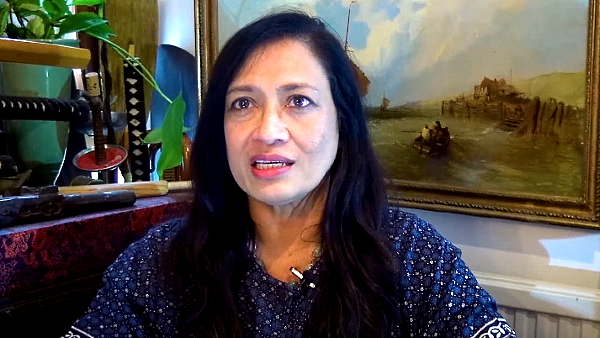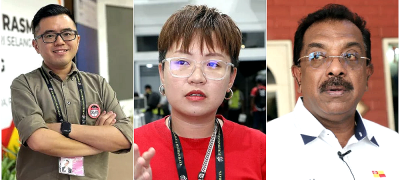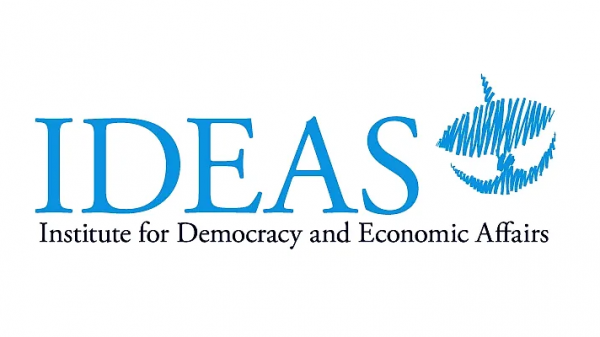Malaysia’s democratic system needs the passionate participation of all citizens, or it will lose its significance.
The voters in six states will exercise their citizens’ right tomorrow to decide who will get the run their states.
Tomorrow’s elections can be described as both intense and yet cold.
PN’s “green wave” is ravaging across much of the country, taking on the states currently helmed by the PH-BN pact. But at the same time, the response from the public appears to be lukewarm at best, with many ceramahs not meeting the targeted audience numbers.
These two political camps are doing their utmost to win tomorrow’s elections, handing out “goodies” in their election manifestos in an attempt to woo the voters, some more like candies to please the voters than substantial policies. As such, voters should not judge the parties based on their manifestos alone.
Before casting their ballots on August 12, the voters can assess the quality of contesting parties and candidates based on the following three benchmarks in order to make the best decision for their future.
Firstly, the party’s political ideology. Indeed, different political parties and alliances have their own ideologies and governing policies which could be very different from one another. The party with the ideology that resonates well with the electorate will get the power entrusted to them.
Owing to individual demands and differences in their cognizance of political ideologies, conservative and relatively more progressive parties have their own ready markets.
As voters, before we drop the ballot papers in our hands into the box, what we need to ponder is this: does the political ideology of this party match our perception? Are we supporting diversity or singularity?
Secondly, the governing ability of a political party or alliance.
Three of the six states having their elections tomorrow are currently held by PN, namely Kelantan, Terengganu and Kedah; while the other three are helmed by PH-BN, namely Selangor, Penang and Negeri Sembilan.
The performance of the ruling parties in these states can serve as an important reference as to which party or candidate to vote for.
Are these parties/alliances competent in running their states and ensure the well-being of their residents? Are the people’s everyday problems taken care of? Are they able to provide clean water to the people and ensure the hygienic and healthy living environment for the people?
Notably, PN has portrayed the state elections as a referendum on the performance of the federal government in a bid to win more votes, but this is definitely not an appropriate move.

The state and federal administrations are not of the same level, and their scopes of administration are not the same, as the state election will determine the right to run a state and has nothing to do with the federal government.
PN’s “referendum” narrative has obscured the role of state governments and could be misleading to some voters.
A state election is a state election. Period.
The voters in these six states need to understand that they are going to vote for a state government that is competent and efficient in running the state and local affairs. They are not here to evaluate the performance of the federal government.
Thirdly, the candidate’s quality. Although majority of voters are more inclined to vote for a party of their preference rather than the candidate per se. That said, members of the public should also inspect the fitness of the candidates instead of just picking whoever that represents their preferred party.
A quality rep not only will provide good services for the constituents, but will also help elevate the overall political standard.
When the voters are demanding more from their reps, the parties will have to select better quality candidates to meet public expectations.
The above are only for your reference. It is hoped that all voters will cast their votes wisely and pick the best candidates that will deliver.
Additionally, the social media is currently inundated with all kinds of rumors and info, some reliable, others not; some reasonable, others seditious and malicious. Voters will need to know how to filter such information and not to be easily affected by it.
Most importantly, head to the polling stations on Saturday and cast your ballots in fulfilling our citizens’ obligation.
Unfortunately, the voter turnout is generally expected to be low compared to the 15th general election, given the lack of passion among eligible voters in these six states. Bersih is even worried that the voter turnout could be below 55%, which is alarming.
Although the elected state government will remain legitimate even if the voter turnout is unsatisfactory, its representation is invariably inadequate.
Malaysia is a democratic country, and as citizens of this country, we all have the responsibility and obligation to elect our representatives, and entrust the party/alliance winning more than half the seats to form a government.
We can fortify our democratic system, deepen our democratic spirit and spearhead the healthy development of democracy by going out to vote.
Voting is such a simple thing to do. The thing is, Malaysia’s democratic system needs the passionate participation of all citizens, or it will lose its significance.
Have a date with democracy this August 12.
ADVERTISEMENT
ADVERTISEMENT








































